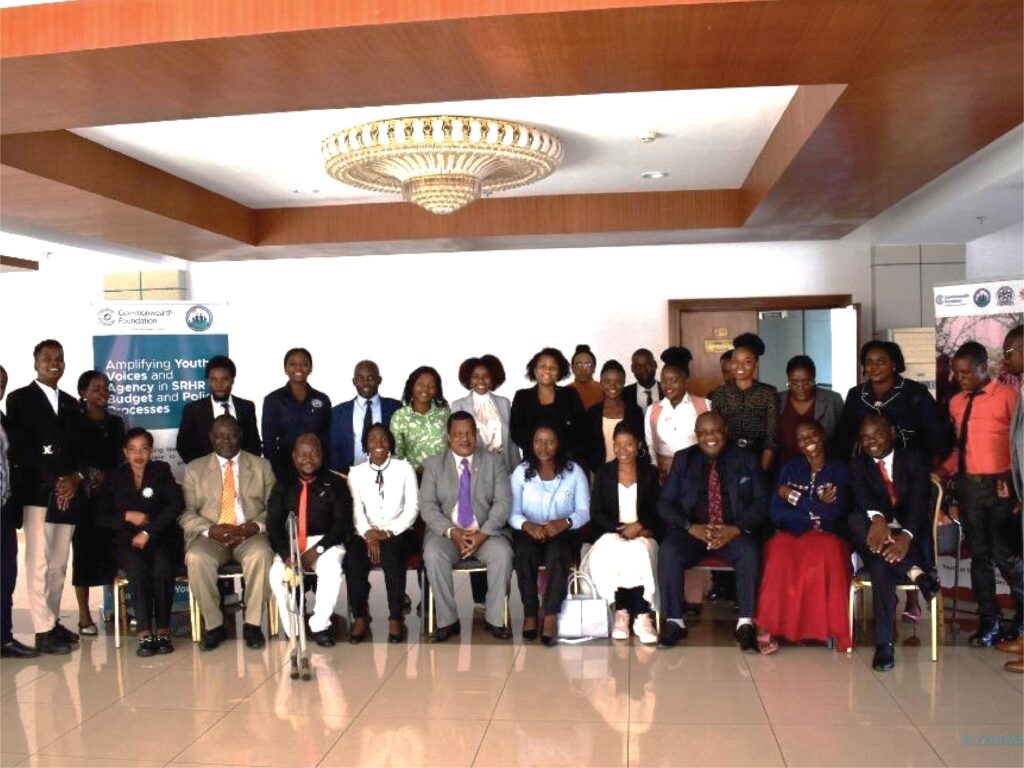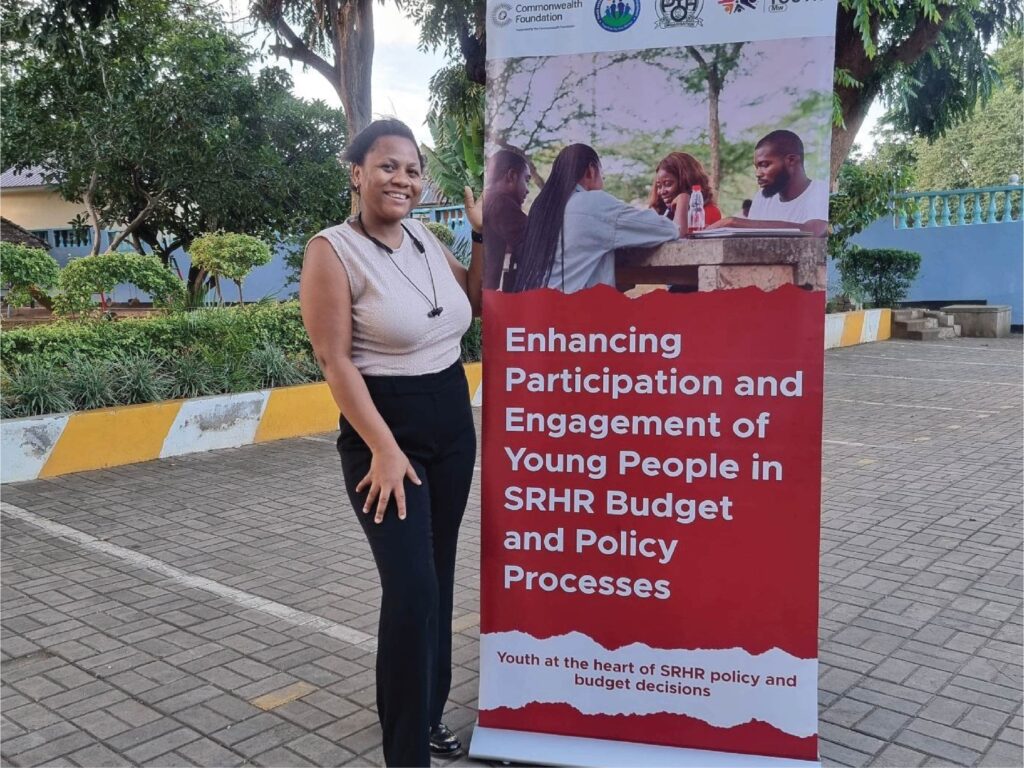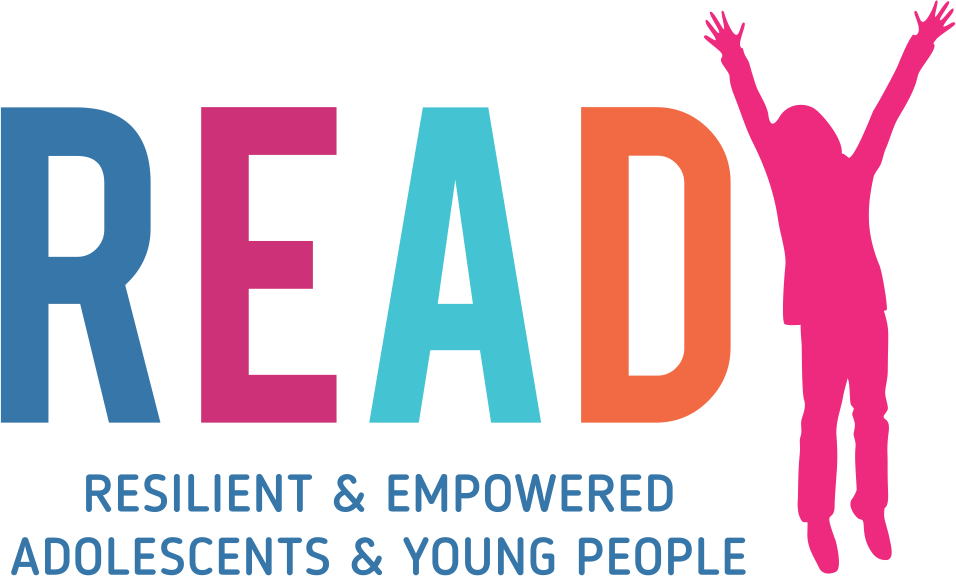

[From left to right: Attendees of the Ministerial Budget Consultation, and the READY Focal Point for Malawi; Lusungu Harawa]
Over the years, as a passionate young advocate for READY and for my organisation, Y+ Malawi, I often perceived national budgets and engagement in them as something far removed from my reality—topics I only encountered in newspapers or on social media. However, my understanding changed in 2025 when I participated in advocacy training on national health budgeting alongside my fellow advocates. I felt I was finally able to step into the spaces where impactful decisions are made.
Before the 2025/2026 Ministerial Pre-Budget Consultations, the Malawi Health Equity Network (MHEN) organised the Health Budget Advocacy Training, which focused on empowering and preparing youth advocates to engage meaningfully in health budget processes. We were taught what to watch for, how to analyse the national health budget cycle, pinpoint crucial entry points for advocacy, and acquire practical skills to champion increased investments in health, especially for young people.
Armed with this newfound knowledge, I was READY to participate in the 2025/2026 Ministerial Pre-Budget Consultations.
Under the theme “Youth Voices on the National Budget Towards a Youth-Centric Future,” this consultation, led by the Minister of Finance and Economic Affairs of Malawi, aimed to ensure that the needs of young people are reflected in the national budget. During our focused discussions, we shared insights and recommendations on how funding could effectively nurture youth development and well-being.
Alongside other youth-led organisations, we presented a collaborative analysis of the 2025/26 national health budget, shining a light on the gaps in funding for HIV and sexual and reproductive health and rights (SRHR). We raised an urgent concern: Malawi is still heavily dependent on external donors, especially in the HIV sector, where over 97% of funding comes from outside sources. With several donors beginning to scale down their support, we asked an essential question: What will happen to our health services when these donor funds run dry?
In Malawi, READY+ is led by the National Network of Young People Living with HIV in Malawi (Y+ Malawi), aimed at promoting and engaging young people in health and decision-making at all levels. The program aligns with government priorities on expanding youth-friendly services and HIV prevention efforts. Through READY+, Y+ Malawi was engaged in the Youth-Friendly SRHR Financing Interface Meeting with the Parliamentary Committee on Health, demonstrating the power of youth-led advocacy in influencing high-level policy discussions and promoting sustainable financing for health, particularly within the HIV sector.
We passionately urged Parliament to enhance domestic financing, advocating for investments in prevention, treatment, care, and youth-friendly services. We emphasised that SRHR and HIV should be prioritised in national allocations rather than relying on the goodwill of international partners.
Drawing from the insights I have gained as a READY Focal Point for Malawi and a member of the HIV Cure Academy, I decided to speak up during the Q&A to highlight a bold yet often neglected issue: “As the Health Committee, what plans are in place to support HIV cure research in Malawi?” The global field is advancing rapidly, and Malawi cannot afford to lag. The Chairperson recognised the significance of this question, underscoring the necessity for deeper national engagement in cure research and innovation.
What truly made these moments impactful was not only our presence but also our thorough preparation. As youth advocates, we need to be informed and strategic about engagement in these spaces and how we organise ourselves. My participation in these platforms was not symbolic but a united effort by youth-led movements to influence tangible decisions. This experience served as a powerful reminder of our strength as young people. We are not just passive beneficiaries; we are active stakeholders, contributors to policy, and the leaders of tomorrow.
As a READY Focal Point for Malawi, I have learned to strengthen my advocacy and collaborate with other young people to engage with parliamentarians and government stakeholders. As we persist in our demands for funding, inclusion, and accountability, I remain committed to asking those tough questions, particularly about the role of young people in these spaces in driving change. We deserve not just survival but the opportunity to truly thrive.
